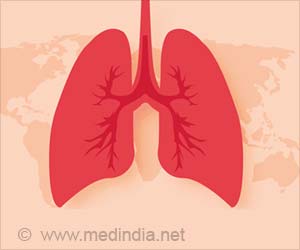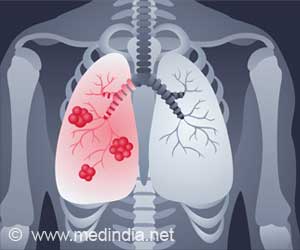Scientists have thrown light on five genetic variants linked to the health of the human lung.
A total of 96 scientists from 63 centres in Europe and Australia have been successful in shedding new light on the molecular basis of lung diseases.The significance of the finding lies in the hope it has provided for better treatment of lung diseases like Chronic Obstructive Pulmonary Disease (COPD) and asthma.
Until now, the molecular pathways that affect the health of the lung were not completely understood.
However, the knowledge of new pathways may help in developing drugs to target it.
Dr Martin Tobin from the University of Leicester and Professor Ian Hall from The University of Nottingham, who led the study, feel the work holds huge significance.
The scientists said: "This work is important because until now we have known very little about the genetic factors that determine an individual's lung function.
Advertisement
"This will lead to a better understanding of diseases such as chronic obstructive pulmonary disease (COPD) and asthma. Crucially, it could open up new opportunities to manage and treat patients with lung conditions".
Advertisement
"Smoking is the major risk factor for development of COPD. Lung function and COPD cluster within families, indicating that variations in genes also predispose individuals to reduced lung function.
"The scientists of the SpiroMeta consortium compared genetic variants at each of 2.5 million sites across the human genome in over 20,000 individuals of European ancestry with their lung function measures. In five different locations in the human genome, genetic variants resulted in alterations in lung function.
"The scientists showed that these were real findings by checking the effects of the same variants in over 33,000 additional individuals. They also compared their results to those of a second consortium, CHARGE, which has published a paper in the same issue of the journal.
The study is published in is published in Nature Genetics.
Source-ANI
TRI















